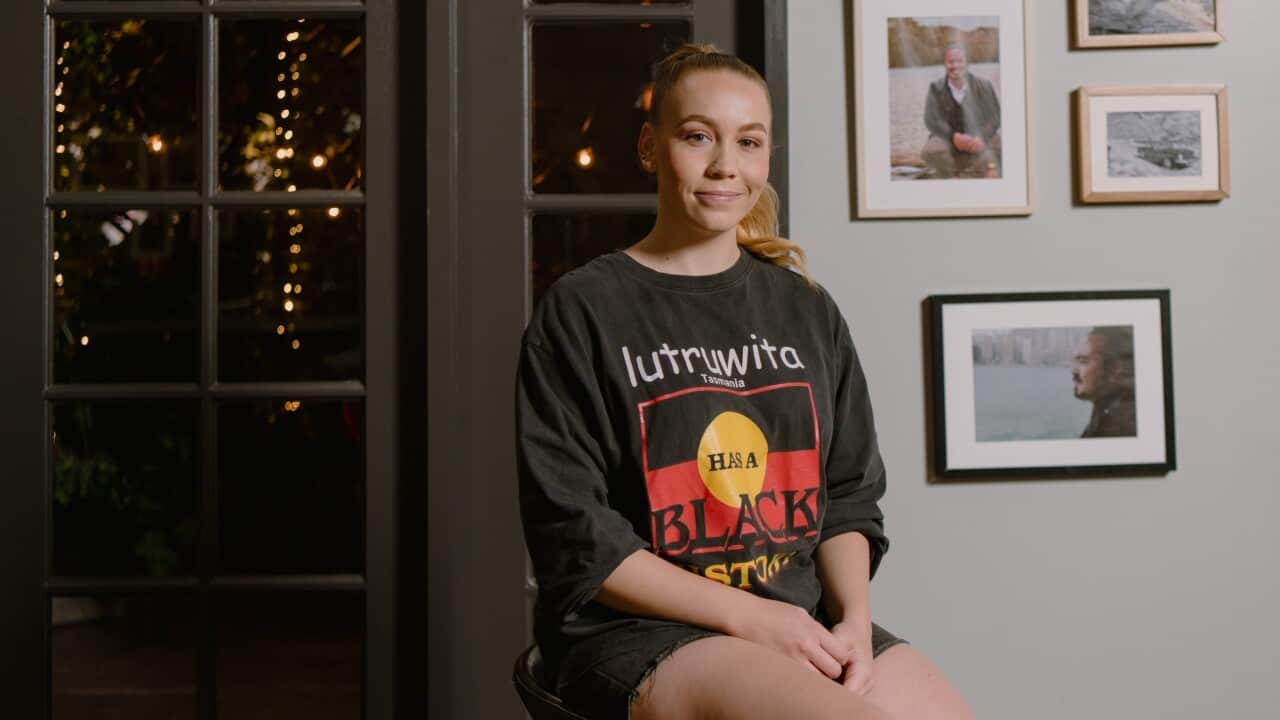Proud Palawa woman, Kitana Mansell from Tasmanian Bush Tucker catering company , wants you to know that there’s so much more to native plants than just their place origin. In fact, there’s 65,000 years’ worth of cultural growing knowledge behind them.
The caretakers of Aboriginal and Torres Strait Islander herbs and spices hail from the oldest continual living culture in the world. Indigenous Australians therefore hold invaluable expertise and sacred knowledge about native plants.
Mansell says if you want to know which native herb to grow on your suburban balcony or whether a specific native spice will flourish in your residential backyard – you’re better off going straight to the source for answers.
“There is a lot of history and information about our culture and native plants that you can read in books but not all of it is correct,” says the 24-year-old cook and bush tucker tour guide “It’s always a lot better to get information straight from Aboriginal people to make sure that it’s right.
“So if you want to successfully grow Indigenous herbs at home, the best thing you can do is visit an Aboriginal-owned and operated business or nursery that sells seedlings and ask questions about what you need to do to grow them.”
In doing so, Mansell says, you’ll not only receive intel about how to grow native plants local to your area but you’ll also pick up tips on how promote a more sustainable Australia and learn to only eat what you need.
“A lot of people think that they can go on a bush tucker tour, like mine, and learn all about bush tucker, then go into the bush and harvest as much as they want [and take it all home]. We don’t recommend that.
“What we do encourage though is a more sustainable practice of eating and sourcing ingredients that aligns with the way our people having been gathering native foods for centuries.”
As a sovereign food advocate, Mansell has garnered a lot of cultural wisdom about edible native plants. Having also worked at Palawa Kipli since age 17, she knows what growers must pay attention to when planting Indigenous seedlings.
Essential tips for growing and storing Indigenous produce
“If you're looking at using native herbs or spices in the kitchen, learn how to protect the plants from the weather and animals like wallabies or possums. But try not to use any chemicals. It’s always best to grow these herbs and spices as naturally as possible.”
By eating the foods that our people have eaten for thousands of years in a sustainable way, we can all help to ensure a more sustainable future.
Once you’ve successfully grown native herbs or spices at home, you’ll need to know how to store them.
“Personally, I love to use all of the native herbs and spices in my cooking, fresh, so they provide the most flavour,” says Mansell, who appears as a guest on on SBS. "But you may also want to store them.
“Freezing native fruits or vegetables is a great way to store them for a long time. For plant-based herbs and spices though, I’d suggest drying them out first and then putting them in airtight bags or containers to store in the pantry.”
Must-try herbs for your kitchen
Mansell says there are two Tassie-grown herbs that currently reign as her favourites.
“Kunzea is a native edible plant that’s kind of like a lemon-scented tea tree. You can use this herb to replace rosemary or thyme in your cooking.
“One of the most special dishes I make at Palawa Kipli is a full wallaby on the coals. I put kunzea leaves underneath so that the smell and flavour of the plant smokes through. It produces a beautiful flavour throughout the entire wallaby.”
Pepperberry is another versatile native plant that's useful in the kitchen. “It's a great replacement for pepper, and has a really nice flavour to it. Pepperberry can be used to balance sweet and hot foods. I also combine it with lemon myrtle to create a vinaigrette for oysters.”
No matter what native herbs or spices you grow, Mansell says it's essential to make sure you care for country and avoid wasting food.
“It’s so good to share knowledge about Indigenous plants with the wider community so everyone can understand more about how to use our ingredients in home-cooked meals.
“Let's just make sure we keep this a sustainable practice, so that future generations get the opportunity to do what we're doing now”.


